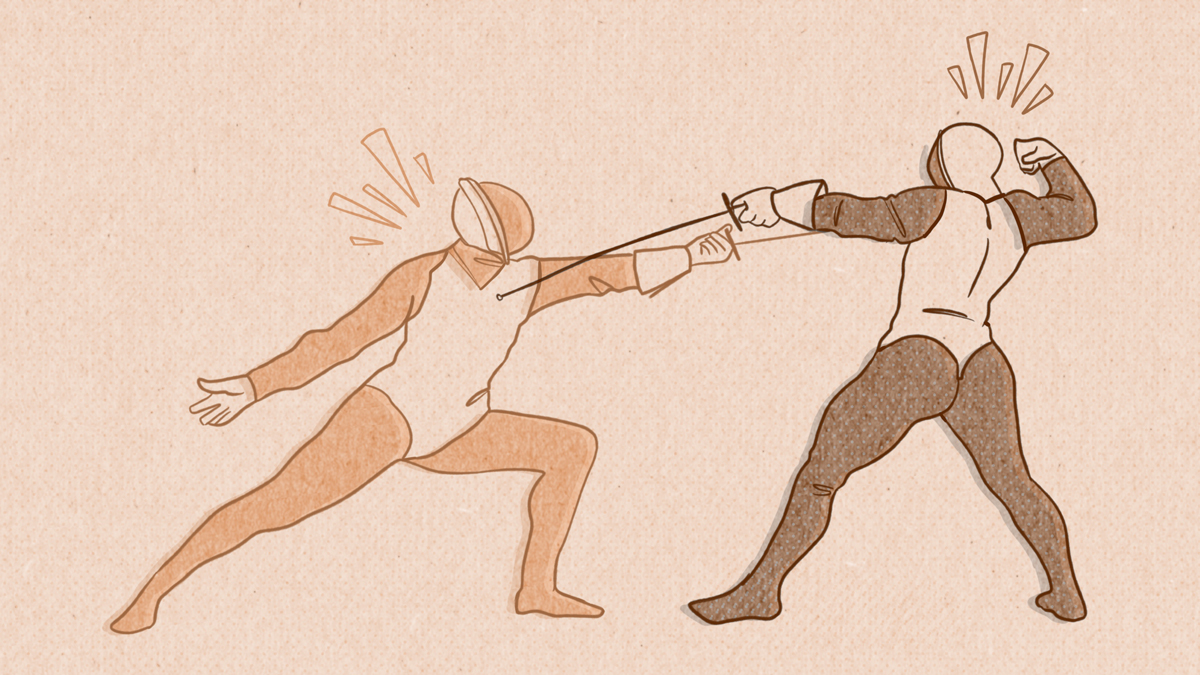 Alex Patterson
Alex PattersonThe University of Alberta Fencing Club provides the opportunity for anyone to fence, whether they’re seasoned at swordplay or have just seen a lot of medieval movies.
Anyone can join the club to train or just try out fencing. While most of the members are current students, anybody 17 or older can come to the meetings. The club has an illustrious history, dating as far back as the 1950s, and was quite prestigious for its competitive nature. Today, they focus on the recreational aspect of the sport.
“The real goal of the club right now is to just bring fencing to students,” said Cameron Griffiths, a fifth-year virology PhD student who serves as president of the club. “Even myself, like the other students, had never tried (fencing) before coming to university.”
“Everybody knows fencing exists, but very few know that you can try fencing in Edmonton or at the U of A.”
Members of the fencing club attend many tournaments across Alberta each year. Every March, the fencing club holds its own tournament, the Wetterberg Open, which hosts all age groups and forms of fencing from Edmonton’s various fencing clubs in the Education building’s gym. While the competition can be intense, individuals of all skill levels can attend.
The Wetterberg Open started in the 1960s, contributing to the club’s long history. After undergoing a number of name changes, the tournament is currently named after Alberta Sports Hall of Fame inductee and former long-time coach of the club, Fran Wetterberg. The fencing club is one of the longest lasting fencing institutions in Alberta.
The objective in fencing is to score points by hitting your opponent with the weapon, while avoiding getting hit yourself. Additionally, players fence within a long rectangular playing field, and stepping outside of this field rewards your opponent a point. Each different fencing weapon (foil, epee, and sabre) has its own permissible areas of contact and result in varying styles of the sport.
“Fencing is an interesting sport described, but not by me, as ‘physical chess’ because it doesn’t matter the weapon — half of the battle is with your mind and half of it is ability,” Griffiths said. “You can train to be the physical best in the world, but you can still be outwitted by your opponent.”
The club’s current goal is to foster a larger fencing community across campus.
“I think it’s just a matter of getting people exposed to fencing,” Griffiths said. “It’s kind of an interesting situations where almost everybody wants to try fencing.”
“Fencing isn’t the most popular sport in the world, but overall it’s an interesting one because it’s very well known, with few people who actually do it.”




